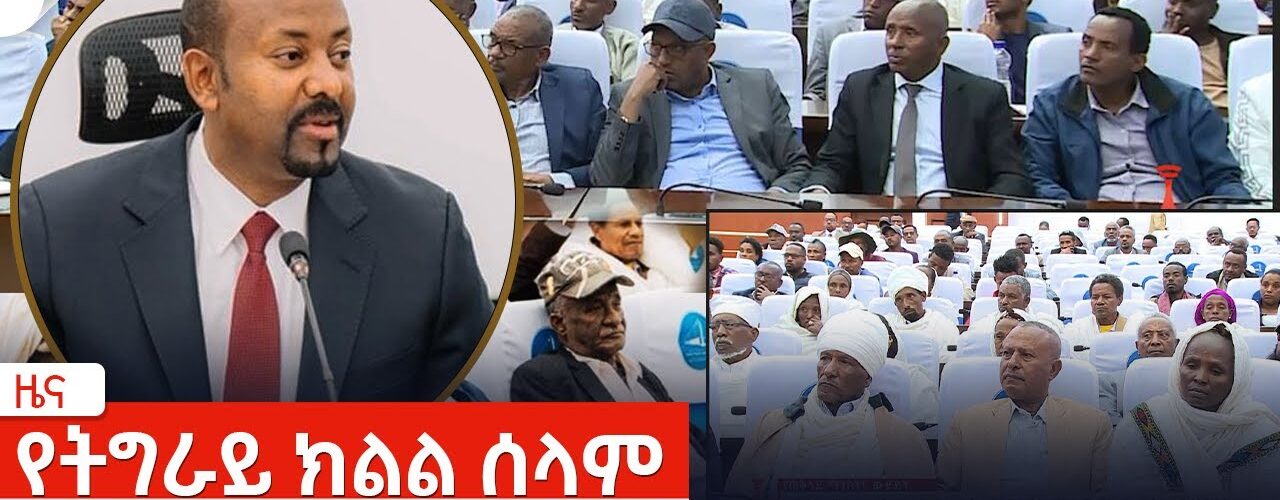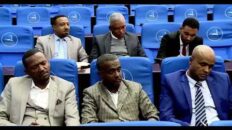Over the past week, there have been reports of targeted arrests of Tigrayan youth in Addis Ababa. According to sources within the city, young individuals from various professions have been apprehended without any apparent wrongdoing. A source, requesting anonymity, disclosed that three of their relatives, who work in the modest occupation of selling cleaning supplies, were detained in Kaliti, Addis Ababa, without being informed of the reason behind their arrest.
Other reports indicated mass arrests of Tigrayans in CMC area. One source told UMD Media, “Hagos Desta (his name changed to avoid repercussions to his family) earns a living by selling second hand clothing (locally known as “selbaj”). He was carrying his identification while walking home when he was arrested on Thursday around Asko area, northern Addis Ababa.”
The rationale behind the detaining of Tigrayans, especially after the Pretoria Agreement and the subsequent agreements between the TPLF and the Ethiopian government aimed at fostering peaceful relations, releasing civilians, and resolving differences amicably, remains unclear. Notably, such detentions were not observed following the signing of these agreements.
War Rhetoric
These arrests followed increased mentions of war by Prime Minister Abiy Ahmed and his officials, as conveyed through state media.
Speaking to handpicked Tigrayan representatives from Tigray and Addis Ababa on March 16, 2024, Prime Minister Abiy Ahmed warned, “To those individuals in Tigray entertaining the idea of initiating another war, tell them to desist as it will be futile. Do not say I didn’t warn you afterward. I am prepared to engage in dialogue. Beyond that, there is no justification for war. If it ensues, it will only result in further catastrophe, surpassing previous levels of destruction.”
Many Tigrayans recall similar rhetoric from the PM preceding the devastating November 2020 war, which resulted in the loss of countless lives and widespread sexual assaults on Tigrayan women and girls.
Prior to his warning on March 16 and particularly thereafter, state media has been broadcasting messages insinuating Tigray’s readiness for war, a narrative that many within Tigray, including opposition parties, refute as baseless and view it as a pretext for initiating yet another assault on the region.
Connecting to the war in Amhara
Daniel Kibret, recognized for his hate speech during the Tigray war, took to Twitter on April 6, 2024 to allege Tigray forces’ support for Amhara militia and Fano in their resistance against the Ethiopian government. Describing Amhara fighters as biblical Legions, a collective name of the multitude of demons, Daniel Kibret’s tweet implied Tigrayan involvement in aiding these forces. He stated, “The Legion’s vice-captain in the north [Wollo Fano’s Mire Wedajo] has crossed the river and is being treated on the other side [Tigray]. With that, all the arms sent from the north[Tigray] to save the Legion from death is being seized.”
Mire Wedajo refuted previous online media campaigns affiliated with the Ethiopian government, which reported his alleged injury and transfer to Mekelle for medical treatment, dismissing them as fabrications. He remarked, “We remember how the government had previously claimed that Debretsion [former Tigrayan president] was killed during its war in Tigray.”
The same online media outlets were reporting on Getachew Reda’s purported meeting with officals from Egypt and Eritrea while he was abroad for medical reasons. An anonymous expert speaking to UMD Media commented, “This is a typical tactic of the Ethiopian Government. They initiate fabricated, sensational stories through online media with large followings, followed by dissemination through personal pages and media outlets associated with government officials like Daniel Kibret, to signal their intentions. All signs now point to a desire to escalate conflict with Tigray.”
Reactions
When asked about the timing and motivation behind fabricating such stories, the expert speculated, “There could be multiple reasons. Abiy Ahmed is facing increasing challenges in Amhara and is rapidly losing support. He may see benefits in diverting the attention of Amhara fighters away from himself, repairing his fractured relationship with Eritrea’s Isaias, and deflecting attention from the economic difficulties he must address.”
The Tigray opposition party, Salsay Weyane Tigray, conveyed significant apprehension during its latest weekly press release regarding the resurgence of hate speech aimed at Tigray and propaganda undermining the core principles of the Pretoria Agreement, particularly on state-owned media and its affiliated platforms.



